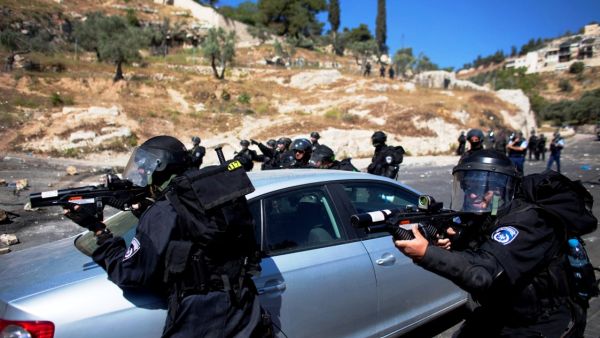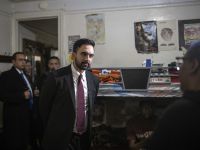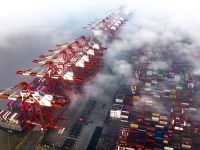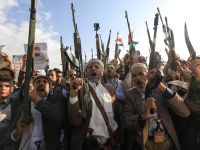Jewish settlers protested Tuesday against Palestinian plans to seek United Nations endorsement of statehood in the occupied West Bank, and clashes erupted in one village, underscoring growing tensions in the territory.
Two dozen from the settlement of Yitzhar threw rocks at Palestinians near the city of Nablus, and soldiers responded by firing tear gas and stun grenades, a military spokeswoman said. Palestinians said a gas cannister injured one youth.
Nearby about 200 settlers, many waving blue and white Israeli flags, marched from the Itamar enclave to a traffic circle near a checkpoint on a road linking the Palestinian cities of Ramallah and Nablus, where they danced and sang Hebrew songs.
Moshe Goldsmith, the mayor of Itamar’s 1,400 residents, said the march was in response to Palestinian President Mahmoud Abbas’ plan to seek Friday U.N. Security Council recognition for a Palestinian state in the West Bank.
“We are just showing them that this our home. We are the true owners of the land of Israel,” Goldsmith said.
“As the U.N. talks about giving away our land and trying to a form a state in the heart of the Jewish nation we are showing we are marching freely in the heart of the Jewish nation. In our nation, our land,” Goldsmith said.
The gathering point for the march from Itamar, a red-roofed enclave home to 1,400, was the home of the Fogel family, where an Israeli couple and three of their children were murdered in March, a crime for which Israel has charged two young Palestinian men and convicted one of them.
Marches were also planned at at least two other West Bank destinations, but Israeli media said turnout had been less than anticipated. Some settlers have chosen to ignore the Palestinians’ U.N. bid and are quietly urging Israel to respond by annexing at least some of their enclaves.
“Israel is the land of the Jewish people, no U.N. vote will change that,” David Ha’ivri, a settler spokesman said in a remark on Twitter.
Abbas has turned to the U.N. over Washington’s objections, after Western-sponsored peace talks with Israel froze a year ago in a dispute over settlements, even as American and European Middle East power brokers engaged in last-ditch efforts to try and revive these talks.
Israeli Prime Minister Benjamin Netanyahu, also expected to attend the U.N. session this week, denounces the Palestinian step as an attempt to challenge Israel’s legitimacy and avoid direct negotiations.
Goldsmith thought the United Nations debates may instigate more violence between settlers and Palestinians, some of whom have already been locked in a confrontational spiral for decades.
He accused Palestinians of throwing rocks and firebombs at settler vehicles. Palestinians have accused the settlers of vandalizing farmland and razing olive trees in the past week.
The U.N. agency OCHA has recorded an upswing in settler attacks this year compared to last year and the rate has increased further in the last few weeks, with three mosques vandalized in September.
Palestinians have responded by forming volunteer groups to keep watch and, in some cases intervene to prevent the attacks which usually occur in land near settlements which is under full Israeli control. Cities such as Ramallah, Nablus, Jenin and Bethlehem are policed mainly by Palestinian security personnel.
Israel captured the West Bank in a 1967 war and Israeli nationalists see the territory, where Palestinians want to establish their state, as a biblical birthright. In all some 500,000 Jewish settlers live in East Jerusalem and the West Bank, an area also home to some 2.5 million Palestinians.








